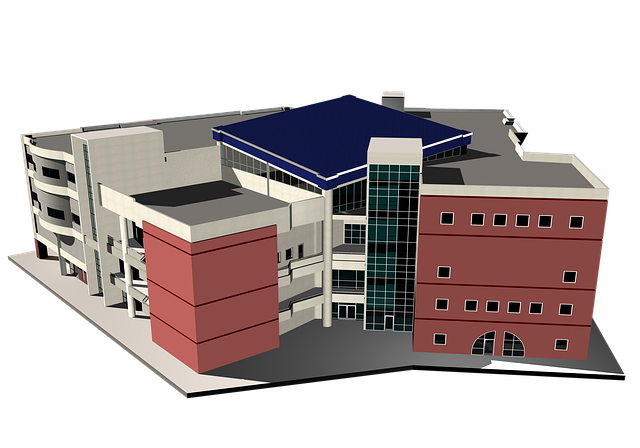In South Africa, understanding the differences between hospital plans and medical aid is key to making an informed healthcare decision. Hospital plans focus on inpatient care with lower costs but limited primary care, while medical aid offers broader coverage including outpatient services, preventative care, and medications. The "better" option depends on individual health needs, financial situation, and preferred level of access and control over treatment choices. For short-term, specific treatments, hospital plans are suitable; for long-term comprehensive care with routine check-ups and chronic condition management, medical aid is preferable.
In South Africa, understanding the distinction between hospital plans and medical aid is crucial for making informed healthcare decisions. While both offer financial protection, they operate differently. This article guides you through the intricacies of each option: from defining and comparing their benefits to analyzing costs and suitability. By exploring these nuances, especially which is better for your needs—a hospital plan or medical aid—you’ll be equipped to select the optimal choice for your health security.
- Understanding Hospital Plans: A Comprehensive Overview
- – Definition and how they work
- – Benefits and limitations
Understanding Hospital Plans: A Comprehensive Overview

In South Africa, understanding the distinction between a hospital plan and medical aid is paramount for individuals seeking healthcare coverage. While both options offer financial protection during medical emergencies, they function differently. Hospital plans are designed to cover specific treatments and procedures within hospital walls, focusing on in-patient care. This includes room and board expenses, doctor fees, and various medical interventions. On the other hand, medical aid schemes provide a broader spectrum of coverage, encompassing not only hospital stays but also outpatient care, preventative services, and prescription drugs.
When contemplating which is better between a hospital plan and medical aid, it largely depends on individual needs and priorities. Hospital plans excel in offering comprehensive inpatient care at potentially lower costs for those who primarily require specialized treatments or frequent hospital visits. Medical aid, however, provides more extensive coverage, including routine check-ups, preventive measures, and a wider range of healthcare services beyond hospitals. Therefore, the choice should be guided by considering which type of coverage aligns best with personal health requirements and financial considerations.
– Definition and how they work

In South Africa, both hospital plans and medical aid schemes play significant roles in ensuring accessible healthcare for citizens. However, understanding their distinct differences is crucial when deciding which option aligns best with your needs. Hospital plans are typically short-term insurance policies designed to cover unexpected admissions and treatments in hospitals. They offer peace of mind by providing financial protection during unforeseen health events, often with a focus on policyholder choice of medical facilities. On the other hand, medical aid schemes are long-term, membership-based programs that focus on comprehensive healthcare coverage, including preventive care, routine check-ups, and specialized treatments.
When comparing which is better between hospital plans and medical aid, it’s essential to consider your individual circumstances. Medical aid usually offers broader network access to hospitals, specialists, and other healthcare providers, making it ideal for regular use and managing chronic conditions. Hospital plans, with their flexible nature, can be advantageous for those seeking more control over treatment choices but may incur higher out-of-pocket expenses during major health events.
– Benefits and limitations

When deciding between a hospital plan and medical aid, understanding their unique benefits and limitations is key to making an informed choice. Which is better? It depends on individual needs, financial considerations, and desired coverage scope. Hospital plans, often known for their simplicity, offer comprehensive cover for hospital stays and related services. They are generally more affordable than medical aid schemes, making them attractive to budget-conscious individuals or families. However, these plans might not provide the same level of primary care benefits, specialist consultations, or routine medical procedures coverage as medical aid options.
Medical aid, on the other hand, typically provides a broader range of services, including preventive care, chronic condition management, and specialized treatments. These schemes often have a wider network of healthcare providers and hospitals, allowing for greater flexibility in choosing healthcare professionals. However, medical aid plans can be more expensive, with varying levels of co-payments, deductibles, and waiting periods attached to different benefits. Members may also face limitations regarding specific treatments or specialist choices based on the plan’s terms and conditions.
When considering healthcare options in South Africa, understanding the distinct differences between hospital plans and medical aid is crucial. Both offer essential coverage, but they function differently. While medical aid provides a broader range of services and often includes preventative care, hospital plans specialise in inpatient treatment with quicker access to hospitals. Ultimately, the choice between them depends on individual needs, budget, and preferred level of healthcare accessibility, making it important for South Africans to weigh the benefits and limitations of each option carefully when selecting their ideal healthcare coverage. In terms of which is better, hospital plan or medical aid, it’s a personal decision that should be based on comprehensive consideration of one’s health, financial, and lifestyle factors.

